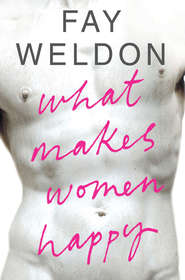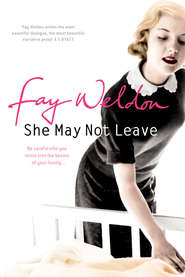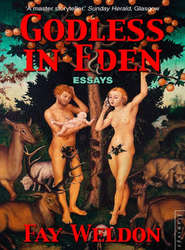По всем вопросам обращайтесь на: info@litportal.ru
(©) 2003-2024.
✖
The President’s Child
Автор
Год написания книги
2018
Настройки чтения
Размер шрифта
Высота строк
Поля
‘I’m fine.’
‘Everything OK? Husband, kid and so on?’
‘Yes, they’re fine.’
Silence. Then:
‘It’s very late at night. I was in bed.’
‘I’m sorry, Mum. I just wanted to make sure you were all right.’
‘Why shouldn’t I be? Nothing ever changes here. How about your end?’
‘I have my own TV show. Once a week. It’s only a chat show, but it’s a start.’
‘Good on you, chicken. Given up journalism, have you? Or did it give you up?’
‘It’s the same thing, really.’
‘Is it? I don’t watch much TV; I wouldn’t know. It all seems rather crude to me. But this is Australia, isn’t it. Down under, here. Enjoy it, do you?’
‘Yes.’
‘That’s the main thing. Homer doesn’t mind?’
‘No. Why should he?’
‘You know what men are. What suits you never suits them. Listen, chicken, I hate to do this to you, but there’s some sort of goddamned hornet got through the hole in the fly door. This place is rusting to pieces. I’ve got to go.’
‘Of course, Mother. Is it big?’
‘Very.’
‘It’s Jason’s birthday today.’
‘Jason? Oh, the little boy. He must be – what? Four, five? Give him my love. I’m not much use as a granny, but at least I exist.’
‘At least you exist. Bye, Mum.’
‘Why don’t you just call me Harriet? Bye, sweetheart.’
Isabel crept back into bed, dry-mouthed, tasting dust and ashes. Everything was possible, yet everything was impossible. She could wring what she wanted out of the world – success and wealth and personal happiness – and it would do her no good. Her mother would always stand somewhere at the periphery of her vision, out of touch but never quite out of sight, watching her efforts and smiling, passing on the knowledge that the old would do better to keep to themselves – that in the end all goods must be pointless and all sweets tasteless. Better be deaf, and lame, and blind, than know these things too young.
Homer turned towards her in the bed. ‘What’s the matter?’
‘I don’t know.’
‘What’s the time?’
‘Early.’
‘Where have you been?’
‘Ringing my mother.’
‘Christ, why?’
‘It’s Jason’s birthday.’
‘What did she say?’
‘Not what I wanted her to say.’
‘What was that?’
‘Well done. Congratulations. I miss you. Why don’t you fly out and see me. The things your mother says to you.’
Homer enclosed her body, as he did her mind, the better to drive out doubt. He folded her in lean, well-exercised arms. He weighed, year in, year out, exactly what the chart at the doctor’s surgery said he should, increasing or decreasing his calorie intake as the need arose. He cycled to his office every weekday morning, and cycled home again every evening. Twice a week, on Tuesdays and Thursdays, he rose early and ran almost the entire circuit of Regent’s Park.
‘I would live for ever if I could,’ he would say. ‘As I can’t, I will live as long as I can.’
He is a happy man, thought Isabel, he must be. And she wondered what it would be like, to have such an appetite for sheer existence, and when they made love, would try to catch it from him: but the very evenness of his temperament somehow prevented there being a surplus of whatever it was he had; he kept it to himself: worked upon her physically and rhythmically, and left it to her to create the heights and depths she felt appropriate, which, indeed, she did create and felt no disappointment in him, and could answer, in truth, were anyone impertinent enough to ask for details of her love life, ‘Why yes, it is very good. At any rate, neither of us looks elsewhere for partners.’
Homer’s body was as neat and orderly as his mind. It smelt sweet. Her response to it was easy and immediate. She trusted him. Homer did one thing at a time. She liked that. When he made love he focused his energies and concentrated upon the action of body against the body within, as if the least he could do for his partner was to keep the messiness of emotion out, to offer himself clean and whole and untired and uncluttered. The show of emotion, affection, came before and after. It was Isabel’s nature to do everything all at once: to concentrate the emotions of the day in herself, however inchoate and troublesome and tumultuous, and open her legs at night and be taken body and soul. And because she offered both, he took both, body and soul: but to her he offered one at a time. Body first – this, and this, like this, firm and decisive – soul after, icing on a cake, made a little too thin, slipping and sliding and insecure. ‘Was that all right, Isabel?’ And she would say yes, yes, of course, never quite recovering from one night to the next that he found it necessary to ask. What was, was.
He never cried out aloud in orgasm: the noise was stifled, as if there were always listeners, watchers. ‘Hush, hush,’ he’d say to her, if they were away and the bed creaked: or even at home, when she forgot, when something – perhaps only the accumulated emotions of the day – required a wilder protest, noisier relief. And since they were not the emotions he, Homer, had engendered, she had no real right to them at such a time, and so was readily hushed.
Sometimes, after they’d made love, she would weep and not know why.
‘What’s the matter?’ he’d ask.
‘I don’t know.’
‘Didn’t I do it right?’ he would ask, slipping and sliding into insecurity, and she would laugh, because he so patently did do it right, and brought her such gratification.
‘Of course you do it right,’ she’d say.
‘Then what is it?’
But she couldn’t say. Perhaps she wept for the sorrows of the world, or because all things end in death, or because she could not experience pleasure without experiencing too the pain of knowing it must end, or perhaps she wept because Homer never did.
Today at least there was an easy answer.
‘I’m crying because my mother upset me,’ she said. ‘I wish she loved me more.’
‘I wish my mother loved me less,’ said Homer. ‘Then I wouldn’t feel so responsible for her.’
‘We’ve both run out on them.’











